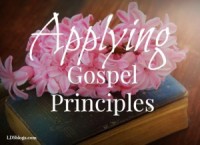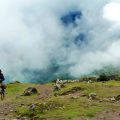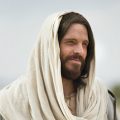It’s Thanksgiving!! It’s one of my favorite times of year to gather as family, friends, and community and give thanks for many, many blessings.
Since Anthony and I are celebrating under palm trees far away from “home” and without the usual and awesome business of the season, I’ve been thinking a lot about the “first” Thanksgiving. Several of my ancestors played prominent roles in that famous gathering, for better or for worse.
I’ll mention two of them.
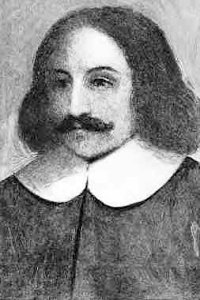 One man, William Bradford, joined the Puritan movement as a sickly and orphaned 12-year-old boy. At 17, he moved with the religious community from England to Holland, where he worked, married, and had a son. Eventually, he sailed on the Mayflower to Massachusetts. He believed that people could put aside self-interest and grievances to build a compassionate community devoted to seeking divine truth and favor. He endeavored to preserve his Zion community at all costs.
One man, William Bradford, joined the Puritan movement as a sickly and orphaned 12-year-old boy. At 17, he moved with the religious community from England to Holland, where he worked, married, and had a son. Eventually, he sailed on the Mayflower to Massachusetts. He believed that people could put aside self-interest and grievances to build a compassionate community devoted to seeking divine truth and favor. He endeavored to preserve his Zion community at all costs.
Another ancestor, Myles Standish, traveled on the Mayflower as the Pilgrims’ muscle. Though short in stature, he was a fearless military captain. He proactively protected the religious community despite his secular bias. His approach to the Native Americans and other settlers, however, seems brutal and hostile to me. He desecrated burial grounds to prove a point, though it only instigated retaliatory violence. Ironically, his remains were exhumed three times since burial.
Two men with two drastically different approaches to life, but both doing what they felt was right and good for the survival of their little community. Both of their wives died during that first bitter winter. Both became leaders of the colony. It seems over time, they both tended to adopt approaches of the other, or use the other’s methods to further a “common” good.
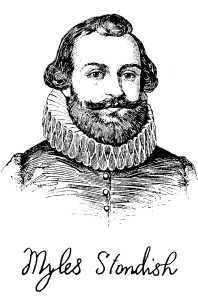 History shows their remarkable strengths and weaknesses, as well as their courage and mistakes. History reveals, especially, how they perceived the world around them—as evidenced by how they approached and responded to obstacles to their survival.
History shows their remarkable strengths and weaknesses, as well as their courage and mistakes. History reveals, especially, how they perceived the world around them—as evidenced by how they approached and responded to obstacles to their survival.
Realizing I’m In a Box
Fast forward a couple hundred years…
I’ve long been a fan of the Arbinger Institute. My first introduction to its peace-making philosophies came by reading The Peacegiver: How Christ Offers to Heal our Hearts and Homes by James Farrell, who is one of Arbinger’s managing partners. The story describes the tenuous relationship of angry spouses, and how the husband’s heart changes through visionary learning experiences taught to him by his grandfather.
The point of the grandfather’s exercises for the angry husband was to teach him to see outside of himself—to get out of the box he was in—and to really SEE the world, especially the people around him.
Arbinger produced several other non-religious books (all favorites of mine) that really teach, when we’re ready to learn, how to step outside your box, or your one and only version of the person next to you and the world around you. The point is to stop seeing the people around you as obstacles or things, and to see others around you as people—as yourself.
The process has become a journey for me. I haven’t rid myself of boxes yet, but I am much more aware of how living in the box limits my thinking and exacerbates my ego’s prevalent weaknesses.
I am William and Myles, more than just genetically. I live in my comfort box. I feel tempestuousness and love—sometimes in the same moment! In the past, I’ve justified using emotions to manipulate a cause. I see now that there’s really no “rightness” in it. It just advocated my ego and not really anyone else’s gain.
My internal anger and prideful ego begin to subside as I learn to look into the eyes and souls of others… And it seems like others are looking, too.
Seeing Others While Out of the Box
I see this transition in many ways around me. One favorite Facebook page is “Humans of New York.” The page and project’s creator, Brandon, takes pictures of individuals, then uploads their faces and stories to Facebook. He started photographing New Yorkers, but has also spent time in the Afghanistan, Pakistan, and Iran. He also spent three weeks in Europe telling refugees’ stories.
 We look directly into the soul of a person who shares some part of his or her life. We see a raw and honest truth. Some stories are happy and delightful. Most stories show the wounds, heartaches, fears, and regrets of life. The comments fascinate me, especially from when Brandon was uploading people’s stories abroad.
We look directly into the soul of a person who shares some part of his or her life. We see a raw and honest truth. Some stories are happy and delightful. Most stories show the wounds, heartaches, fears, and regrets of life. The comments fascinate me, especially from when Brandon was uploading people’s stories abroad.
Scores of Americans wrote that they had no idea Iranians were so similar to Americans. Pakistanis said the images changed their view of their lifelong enemies, Afghanis, and vice versa. People wrote that they were grateful that they, as a nation, could be seen and heard for who they really were.
Everyone noted the universality of hopes and dreams. People want the best for their families. People love, cherish, and sacrifice for their children. People yearn for freedom and peace.
I wonder how different the story could have been for my forefathers and the Native Americans if my forefathers could have really seen them through eyes of love instead of fear—if they had all abandoned their boxes.
I have often said that I wish it was a requirement of humanity that everyone had to live in (or at least visit) a different country/culture. My first experience abroad was as a naive 19-year-old girl. I saw humanity around me. It changed my life. It opened the lid to my box.
I say that we are all God’s children and He loves us all. Do I really believe that? Do my actions show that I believe that?
Love One Another
The best example of out-of-the-box living is Jesus Christ. Oh, how I love Him! The power of His love and belief in us is mind-blowing to me.
“A new commandment I give unto you, That ye love one another; as I have loved you, that ye also love one another” (John 13:34).
“See that ye love one another; cease to be covetous; learn to impart one to another as the gospel requires” (Doctrine and Covenants 88:123).
It seems that the Lord really believes that we can love one another. We can learn.
From Christ Himself:
“Beloved, let us love one another: for love is of God; and every one that loveth is born of God, and knoweth God. He that loveth not knoweth not God; for God is love” (1 John 4:7-8).
From King Benjamin:
“[N]either will ye suffer that [your children] transgress the laws of God, and fight and quarrel one with another, and serve the devil…but ye will teach them to walk in the ways of truth and soberness; ye will teach them to love one another, and to serve one another” (Mosiah 4:14-15).
We Are All Beggars
I suddenly feel inclined to add verses 16-18 from King Benjamin’s address:
“And also, ye yourselves will succor those that stand in need of your succor; ye will administer of your substance unto him that standeth in need; and ye will not suffer that the beggar putteth up his petition to you in vain, and turn him out to perish.
Perhaps thou shalt say: The man has brought upon himself his misery; therefore I will stay my hand, and will not give unto him of my food, nor impart unto him of my substance that he may not suffer, for his punishments are just—
But I say unto you, O man, whosoever doeth this, the same hath great cause to repent….”
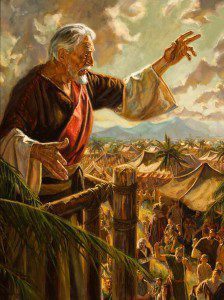 We are all beggars. King Benjamin taught us how to get out of the box. When we see ourselves in the same situation and look into each other’s faces as humans across the world, we finally stop looking fearfully at each other and instead look steadfastly to God.
We are all beggars. King Benjamin taught us how to get out of the box. When we see ourselves in the same situation and look into each other’s faces as humans across the world, we finally stop looking fearfully at each other and instead look steadfastly to God.
My trust and love have been violated before. I’ve fallen prey to dishonesty by a lot of different faces. But, in my own way, I have hurt others, too. We’re all traversing mortality together.
In this journey, I see myself, too. As I get out of the box, I can stand up for myself. I pray for guidance to know how best to act when I find myself in hurtful relationships. Guided by the Spirit of God, I act in faith. I keep my eyes on Him and on moving forward.
“Thou shalt love thy neighbor as thyself” (Mark 12:31).
To Love Another Person Is to See the Face of God
I’m grateful for Thanksgiving. I’m grateful for the amazing souls who taught my forefathers how to survive in Massachusetts. I’m grateful for courage to follow one’s faith. I’m grateful for mentors and guides who show me a fuller way of living.
I’m grateful that little by little, I’m learning to see into faces and souls and hearts; that I’m truly seeing my brothers and sisters on this planet. I believe, like Victor Hugo, that “to love another person is to see the face of God.”
I’m grateful that God wants me to get out of my box this Thanksgiving, and every day, and do everything it takes to see His face.
To read more of Delisa’s articles, click here.
“Verily, thus saith the Lord: It shall come to pass that every soul who forsaketh his sins and cometh unto me, and calleth on my name, and obeyeth my voice, and keepeth my commandments, shall see my face and know that I am” (Doctrine and Covenants 93:1).
In Him is ultimate love.
Happy Thanksgiving!
This post was originally published in November 2015. Minor changes have been made.
About Delisa Hargrove
I am a member of The Church of Jesus Christ of Latter-day Saints. I have moved 64 times and have not tired of experiencing this beautiful earth! I love the people, languages, histories/anthropologies, & especially religious cultures of the world. My life long passion is the study & searching out of religious symbolism, specifically related to ancient & modern temples. My husband Anthony and I love our bulldog Stig, adventures, traveling, movies, motorcycling, and time with friends and family.


